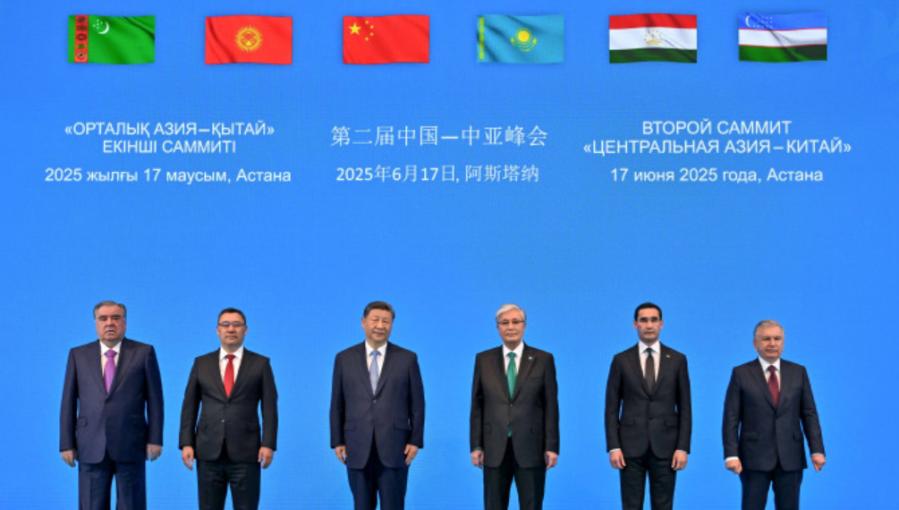
Chinese President Xi Jinping has signed a new treaty aimed at strengthening China’s relationship with the five countries of Central Asia. The agreement was made during the China-Central Asia summit held on June 17 in Astana, Kazakhstan.
At the summit, Xi and the leaders of Kazakhstan, Kyrgyzstan, Tajikistan, Turkmenistan, and Uzbekistan signed a treaty of “permanent good-neighbourliness and friendly cooperation,” according to China’s official Xinhua news agency. The deal is meant to expand cooperation in areas such as trade, energy, infrastructure, and transport.
Xi’s visit comes at a time when Russia, long considered the dominant power in Central Asia, is focused on its war in Ukraine. This has created opportunities for other global powers, including the U.S., the EU, and South Korea, to increase their presence in the region, which is rich in critical minerals.
In his speech, Xi said the world is going through major changes and warned against protectionism and power politics. “Trade wars and tariff wars produce no winners,” he said, in what many see as a veiled reference to tensions with the U.S. Xi also announced a grant of 1.5 billion yuan (about $209 million) to support development and public welfare projects in the region.
China’s trade with the five Central Asian nations reached a record 286.42 billion yuan ($39.86 billion) between January and May 2025, a 10.4% increase compared to the same period last year. Among these countries, Turkmenistan is the only one with a trade surplus with China, mainly because of its natural gas exports.
Xi held separate meetings with the leaders of each country. With Turkmenistan’s president, he discussed expanding gas cooperation and diversifying trade. In talks with Kyrgyzstan and Uzbekistan, Xi called for faster progress on the long-delayed China-Kyrgyzstan-Uzbekistan (CKU) railway project, which began construction this year. He also noted China’s role in upgrading airports in Kyrgyzstan and plans to fund a new airport in Jalal-Abad.
In Tajikistan, Xi pledged support for the country's sovereignty and national security, especially given its border with unstable Afghanistan. The two countries have also launched direct flights between Dushanbe and Beijing.
Kazakh President Kassym-Jomart Tokayev praised China’s consistent partnership, calling it a key factor in regional stability. He also congratulated Xi on his recent 72nd birthday and expressed optimism for China’s continued development.
Relations between China and Kazakhstan were further boosted as Astana announced that while Russia will build its first nuclear power plant, China’s CNNC will be the main contractor for the second. Meanwhile, Kazakhstan has launched the Chinese Tourism Year to attract more visitors from China.
Global

Russia Using Balkans Tensions to Undermine West, Report Says
Russia is deliberately stirring instability in the Western Balkans to gain political leverage over the West regarding the war in Ukraine, according to a new analysis by the Foreign Policy Research Institute (FPRI).